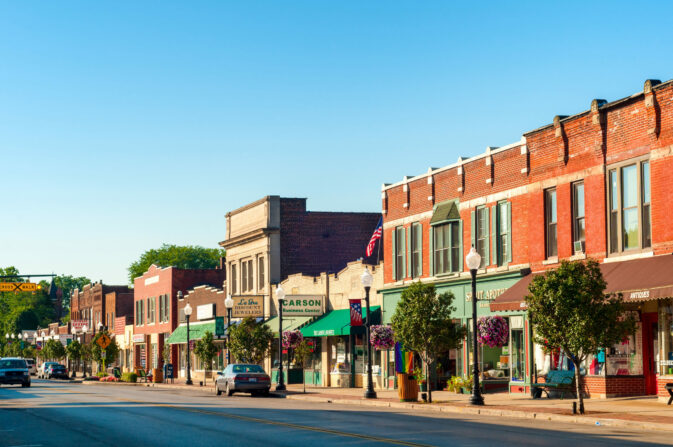Exclusive–Ortiz: Crime Is Another Leftist Policy Threatening Small Businesses

An explosion of flash mob shoplifting and other retail crime has become one of the biggest threats facing American small businesses. As usual, far-left public policies are to blame.
Shoplifting and organized retail crime have increased by about 50% over the past couple of years, costing American retailers about $100 billion annually.
Shoplifting is not the only crime burdening brick-and-mortar stores. Rising numbers of junkies, vagrants, and car thieves dissuade shoppers. This crime wave is a much more in-your-face concern for small businesses than the threats posed by Bidenomics and Bidenflation
This problem is a result of woke district attorneys, often funded by George Soros, who have effectively decriminalized shoplifting, eliminated bail, and turned a blind eye to public order offenses. Some especially woke jurisdictions, such as the San Francisco Bay Area, even have “hands off” policies that forbid security guards from stopping shoplifters. Several major jurisdictions nationwide have defunded their police, meaning cops often arrive late, if they come at all.
These soft-on-crime policies have allowed a small number of repeat offenders to drive the crime wave. A mere 327 super-shoplifters accounted
Sensible crime policy that merely imprisons this small number of bad actors and stops the revolving door between the streets and the criminal justice system can bring small businesses enormous relief. It’s not like we need to send first-time, high-school shoplifters to prison to have an impact.
Woke D.A.s have used racial and economic justice rhetoric to justify their lenient actions, even though the poor and minorities are often the hardest hit by retail crime. These D.A.s have been aided in their efforts by leftists like Alexandria Ocasio-Cortez, who portray the U.S. as a Dickensian dystopia where shoplifters are justified to feed their families.
Due to retail crime costs, businesses are sometimes forced to close. For example, Consign Couture in Portland, OR, didn’t renew its lease after being hit by shoplifters 19 times, costing more than $56,000, over the last year. Nordstrom shuttered its flagship store in San Francisco’s Union Square due to the crime surge. And Walgreens and CVS have each closed several locations.
When a big business leaves, it reduces the foot traffic in the area needed for a small business to survive. Nordstrom’s San Francisco departure, for example, has contributed to the closure of half of the stores in Union Square since 2019.
Retail crime also hurts consumers. Retailers operate on razor-thin profit margins, and shoplifting forces them to raise their prices. The Chamber of Commerce finds that half of retailers have had to raise their prices to absorb shoplifting costs, exacerbating the current cost-of-living crisis. Consumers often confront essential items like laundry detergent and razor blades behind lock and key. Some stores, such as Giant in Southeast Washington DC, have even stopped selling basic consumer items and require customers to show their receipts before they exit.
Workers are also put in dangerous situations. Two employees at The Home Depot have recently tragically died trying to stop shoplifters. No wonder businesses say crime is hitting them from both sides, reducing profits and contributing to a chronic labor shortage. What parent would allow their adolescent child to take a retail job in a blighted neighborhood these days?
Some states are fighting back. So far this year, Oregon, Minnesota, New Mexico, Indiana, Alabama, and Virginia have passed laws increasing punishment for retail theft. In a 2020 case heard before the Tennessee Supreme Court, a repeat offender from Knoxville received six years in prison. Such stiff sentences can deter offenders and should be copied by other pro-small business states and jurisdictions.
Ultimately, the crime wave goes beyond small businesses, consumers, and workers and rots our country’s very institutions such as the rule of law. De facto legalization of shoplifting, public drug use, and rampant homelessness is a national embarrassment. As Target CEO Brian Cornell put it in a recent earnings call, “Left unchecked, theft and organized retail crime degrade the communities we call home.”





